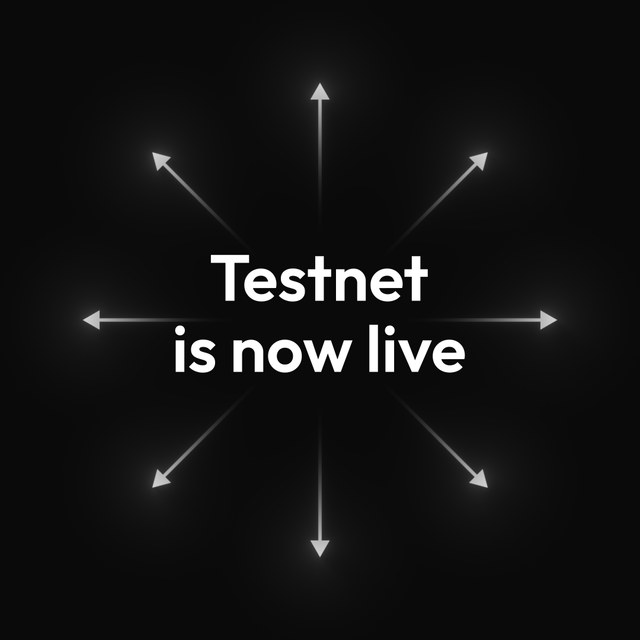Bitcoin will never solve FTX-like problems, Cardano can do it
Up to 70% of all bitcoins were traded on the Mt. Gox exchange before its crash in 2014. The exchange stopped trading activity and was subsequently declared bankrupt. The FTX exchange collapsed in 2022, and like 8 years ago,...

Up to 70% of all bitcoins were traded on the Mt. Gox exchange before its crash in 2014. The exchange stopped trading activity and was subsequently declared bankrupt. The FTX exchange collapsed in 2022, and like 8 years ago, the market value of bitcoin is falling. History is repeating itself, just on a larger scale as the blockchain industry is much larger today. The cause of the problem is the same in both cases. It is the centralisation of power in the hands of an unreliable and untrustworthy middleman. The blockchain industry has failed because, even after 8 years, it has not been able to deal with the problem it has been trying to solve from the beginning. Our only hope is that this will not be the case forever. Cardano is being built to be able to solve exactly these problems. It may take another 8 years, but at some point, we have to get rid of the unreliable middlemen.
TLDR
- Exchanges hold huge amounts of capital and CEOs will always be tempted to use it for their own business without the consent of depositors.
- Bitcoin is dependent on centralized exchanges and will be directly affected by FTX bankruptcy as the market value of BTC affects the profitability of mining.
- The market value of cryptocurrencies is created by supply and demand. Everyone is better off if they meet on decentralized exchanges.
- A decentralized application is just a definition of the steps to be executed based on the expected events. Everyone can look at the steps and decide whether to use the service offered.
- The Plutus platform will make it possible to write applications that can be proven to be secure.
- The more crashes we see in the CeFi space, the more it will become clear to everyone that DeFi and self-custody are the only way to go.
The real cause of the problems
The root cause of bankruptcies in almost all financial services is the concentration of power in the hands of unreliable middlemen. People are greedy and almost always abuse their position when given the opportunity. The larger centralized exchanges hold a lot of capital, and the depositors are the owners, not the exchange. It is very tempting for the owners of the exchanges to use this capital for their own business activities. This is often done without the consent of the depositors.
Once business stops doing well, which may be due to the arrival of a bear market, a very similar scenario repeats itself. People start to suspect that the exchange is not liquid enough. The exchange announces that everything is perfectly fine. A few days later, they suspend deposit withdrawals. Bankruptcy often follows. People lose their deposits. We hear from the media how exchanges have lost large amounts of capital through poor-quality investments or the use of leveraged trading. The cause of the problem may be a hack or a serious technical failure.
Cryptocurrencies are extremely volatile. Exchange owners are trying to apply similar models that work in the traditional financial world. Unfortunately, they often underestimate the length of bear markets and the magnitude of the drop in the market value of assets. The biggest problem, however, is that they take advantage of users' deposits without their consent, relying on the fact that they only need to hold a portion of the capital.
In this bear market, we have already seen Celsius, BlockFi, Voyager, Three Arrows Capital and now FTX fall. The fall of one major player causes a cascading effect and affects other players. It remains to be seen what damage the FTX bankruptcy will do.
Bitcoin is dependent on a centralized infrastructure
Sometimes we can hear the opinion that Bitcoin is not affected by the problem and if you have coins in your own wallet you can not lose them. Bitcoin is also suffering significantly from the collapse of the FTX exchange. The market value of BTC has a direct impact on the profitability of mining. If miners shut down ASIC miners then the security of Bitcoin starts to drop. If the situation is opaque, miners get nervous and start selling their long-accumulated BTC coins in a panic. This may be the final stage before they capitulate. Some miners may go bankrupt, or at best, go out of business. From the perspective of BTC holders, it is not pleasant to see critical network infrastructure collapse. The longer mining is unprofitable, the more impact it can have on miners. Bitcoin will likely survive this, but seeing a 50% hash rate drop would not be a pretty picture for many. Still, it's a scenario that can't be ruled out.
The market value of BTC is dependent on liquidity. Liquidity is mainly provided by centralized exchanges. Miners need to sell the BTC coins they earn to buy ASIC hardware, electricity, rent halls, etc. Exchange trading and high liquidity are essential for the existence of any cryptocurrency.
The problem with the entire blockchain industry is that centralized financial services dominate over decentralized ones for now. As long as trading is predominantly done on centralized exchanges, there will be problems with the misusing of power described above. FTX is certainly not the last exchange to collapse.
Proof-of-Reserve is not a solution to the centralization problem. The exchange may have liabilities that users will not know about. If the exchange owns the coins, it can use them as collateral. The exchange can go bankrupt unexpectedly. Coins can be seized by the authority and used to pay creditors who have higher priority. Proof-of-Reserve does not prevent an exchange from freezing a deposit at the order of an authority or suspending deposit withdrawals.
HODL is not a financial service. People don't want to keep BTC and other assets in their wallets forever. They want to use them for trading, as collateral, lend them, invest them, pay with them, etc. These are common financial services that people can't do without. The goal of the blockchain industry is to have these services more reliable, i.e. decentralized. Financial services require trust in a third party. Should it be a CEO-driven firm or teams building decentralized applications?
The value of cryptocurrencies is not defined or mandated by a central authority. It is determined by supply and demand. Supply and demand have to meet somewhere, and the difference is whether they meet on a centralized exchange or a decentralized one. As long as we remain dependent on centralization, we will see many more FTX-like moments. Bitcoin fans should be interested in making the infrastructure around the largest cryptocurrency more decentralized. The stability and reliability of decentralised exchanges can make the market value of BTC coins, and thus mining, more stable.
Bitcoin cannot solve FTX-like problems at its first layer, and there is no high liquidity DEX in its ecosystem. You can't create a DEX without smart contracts platforms. Cardano is being built in such a way that centralized financial services can be replaced with decentralized ones. If the money of the future is to be decentralized, we must also have decentralized financial services. The bankruptcies of CeFi companies are important lessons for anyone who thought it was possible to reliably use Bitcoin and centralized services. It is not possible. If so, it will only come at the cost of high levels of regulation and limiting the potential for decentralization. None of us wants either.
DeFi is the only way to get rid of the risk of centralization
People will always fail, they will not deliver what they promised and they will not resist the temptation to abuse their position. Source code can't do that. Cardano presents tremendous opportunities when it comes to replacing unreliable and inefficient intermediaries with source code.
The behaviour of the application can be programmed to do exactly what it is supposed to do and what is expected of it. The source code can be audited and any errors found can be fixed. Application behaviour is transparent and immutable. The application cannot be bribed and cannot decide to abuse its position. The application runs (is executed) on a decentralized network, so it cannot be shut down or somehow forced to behave differently. These are exactly the opposite properties of what humans have.
A decentralized application is just a definition of the steps to be executed based on the expected events. Everyone can look at the steps and decide whether to use the service offered. The application behaves similarly to a coin machine. If you insert a banknote into it, it will give you coins of the expected value or return a banknote to you. All states are defined and there is nothing in between.
The very basic difference between centralized services and decentralized ones is that the latter allows self-custody. Users are always in control of the deposit and can withdraw their funds at any time. Applications cannot change how they work so users always know what to expect.
In the case of centralized services, you give cryptocurrencies to a third party and trust that they will not suspend deposit withdrawals and will return your deposit when you want it. Third parties are non-transparent and depositors never know exactly what the third party is doing with users' deposits.
Decentralized services enable on-chain analysis. Depositors can monitor application behaviour and on-chain analysts can do it as well. All necessary data is available on the Cardano blockchain.
Cardano will enable the building of decentralised exchanges, lending platforms and other financial services. Users will always be in control and there is no risk that deposits will be misused. Both the Trezor and Ledger hardware wallets support the Cardano ecosystem, including interaction with smart contracts, so users can have the maximum level of security for their assets.
At the beginning of the article, we wrote that even in 8 years we have not gotten far enough in decentralization to get rid of centralized exchanges. Technology development is a long process and unfortunately, there have been many hacks in the DeFi ecosystems of other platforms. The goal of the Cardano project is to be able to write applications of such quality that failures can be eliminated. While we can never be 100% sure with software, the quality bar can be raised, and the current one is not very high yet.
The goal of the blockchain industry is not to have DeFi services for a few cryptocurrency enthusiasts, but to create alternative financial services on decentralized networks that will at least partially replace the current centralized ones. The more crashes we see in the CeFi space, the more it will become clear to everyone that DeFi and self-custody are the only way to go.
Human errors cannot be corrected. The source code can be fixed. As reliable as Cardano is at sending transactions or minting tokens it is possible to build an equally reliable DEX. Applications can be seen as an extension of decentralization capabilities. The blockchain protocol is essentially just software. An application is a software that leverages the capabilities of other software. Applications can be seen as second layers on top of the blockchain. Blockchain can only send a transaction unconditionally. The application can link supply and demand and execute a trade between two participants in a decentralized manner. The Plutus platform will make it possible to write applications that can be proven to be secure. We believe that in another 8 years it will be possible to swap tokens to Cardano DEX as reliably as sending a transaction.
Conclusion
Hopefully, based on CeFi's current problems, regulators will not impose excessive requirements on the regulation of blockchain technologies and destroy the potential of DeFi. DeFi has no problems. The apps haven't ripped off anyone, haven't gone bankrupt, haven't misused user deposits, and haven't been bribed. They are still operating the same way and tomorrow nothing will change that at all. Regulators should understand the cause of the current problems and understand that decentralization can solve them.
Cardano and other blockchains can change the way the financial world works forever. If we don't realize this, the failures of centralized institutions will happen over and over again. It's incredible to hear some Bitcoin fans say they trust centralized exchanges more than smart contracts. This needs to change. It makes no sense for fans of decentralized money to prefer centralized financial services. The division between Bitcoin and the others makes no sense if we all want to get rid of the risks associated with centralization. The FTX bankruptcy will have an impact on all of us including Bitcoin miners. It may not have been the case if we didn't trust Sam Bankman-Fried. Let's replace people with source code. Do not trust, verify.
Delegate Your Voting Power to FEED DRep in Cardano Governance.
DRep ID: drep12ukt4ctzmtf6l5rj76cddgf3dvuy0lfz7uky08jfvgr9ugaapz4 | We are driven to register as a DRep by our deep dedication to the Cardano ecosystem and our aspiration to take an active role in its development, ensuring that its progress stays true to the principles of decentralization, security, and community empowerment.DELEGATE VOTING POWER!







